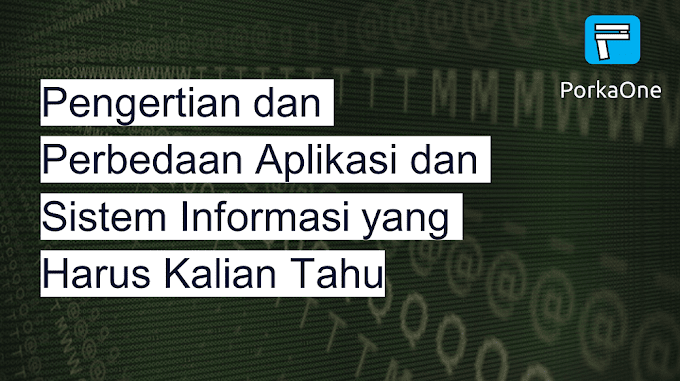Definition of Open Source
Open source is a development license whose management is not coordinated by a single individual or a central institution, but is coordinated by users who cooperate with each other in using source code that is available, free and can be accessed or modified by anyone.Everyone can use an open source program for free, then if it feels that the program is missing or requires additional features, the user can modify it and contribute to making the program better. The freedom to work is highly valued by the open source model. Users are free to work without intervention to learn, change, tamper with, add certain parts, improve, or state that a source code has an error.
In addition, users can also redistribute the program or open source software
for public use. Even though it seems that every user is free to make
modifications, of course this must be accompanied by full responsibility and
not carelessly in making modifications.
Advantages of Open Source
Software that uses an open source license has several advantages, including:1. Free Users to Develop Systems
Open source allows users to study the source code of a software (understand it
little by little).After the user is free to see and understand the source
code, the user can also analyze whether there is anything that needs to be
fixed/added to the source code, then modify it (if needed) so that the
software is better than before. Modifications can also be intended so that a
new system appears according to the wishes of the user.
2. Is a Legal System
By using open source software, users will not violate the law because the
device is not commercially controlled by one particular party. It's
different, for example if a user uses pirated software which is actually not
free, which means it violates the law and can be subject to certain
sanctions.
3. No Piracy
Because all users are free to use and modify open source software, no user
can pirate it, because after all the software has been distributed free of
charge, everyone can get it easily without having to pay. Usually, piracy
occurs because the price of software is quite expensive and not everyone can
buy it.
Disadvantages of Open Source
Unfortunately, despite all the advantages of open source, there are also some disadvantages that exist, for example1. Without Funding and Marketing Support
Unlike other software that is supported by funding and marketing from the
company, open source licenses do not have this support, so it takes quite
a long time to introduce software using open source licenses. For those
who don't understand it, open source software or operating systems are too
foreign and in the end few people know and use them.
2. Some Open Source Application Interfaces Are Less Familiar
The appearance of open source software can be different from that of
closed source software, so users must try to understand it in a
self-taught way or get used to the display.
So many articles this time about what is open source?, the advantages and
disadvantages of open source. May be useful. If you have questions, please
ask in the comments column below. That is all and thank you.







0 Comments
Come on ask us and let's discuss together
Emoji